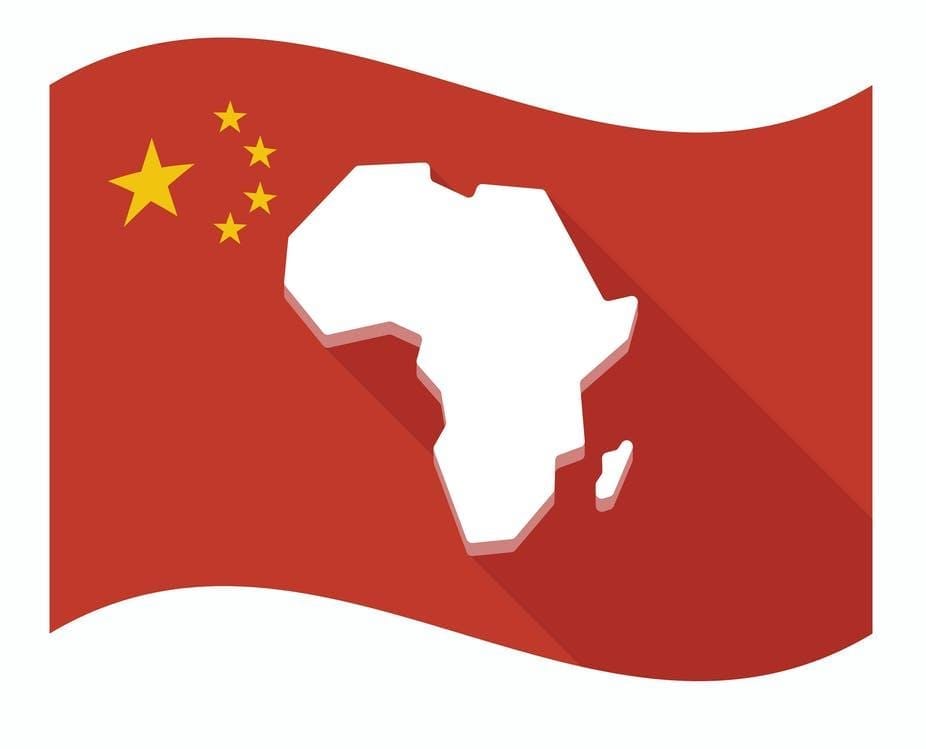China has various interests in the continent and most of them are based on cooperation agreements.
The Chinese engagement in Africa is quite visible in its economic aspect (even though, for the first time, trade between China and Africa fell this year amid the coronavirus crisis). After all, China’s economy is growing – which also includes a potential overproduction crisis. Therefore, China needs energy and resources – badly – and she needs markets; The African continent, in its turn, can meet such demands and provide plenty of natural resources. And so it does and we all hear constantly about it. China, in its turn, exports cheap electrical devices, clothing etc to African nations (as well as more technologically refined products) – all for a cheaper price than Europe or the US. That’s basically how it goes: China imports natural resources and exports consumer goods. Right? But that’s not all.
China has also been investing in some major infrastructure projects in the continent, (including railways and power plants) thus accelerating agricultural modernization and industrialization there.
One could say the 2015 Forum on China-Africa Cooperation (FOCAC) was a recent turning point in terms of Chinese-African relations. Since then, cultural exchange programs have been created, debts have been canceled, interest-free loans have been given, and many special humanitarian programs have been created. All of that has certainly improved China’s image in Africa and abroad.
Not everything is rosy, though: for example, when African economies are flooded by cheaper Chinese products, local producers are damaged.
As early as 2009, a study concluded that Chinese exports impacted Africa by means of displacing local industries. Discrimination against African migrants in China is also increasing (in Guangzhou, particularly). Overall, however, China is well-perceived in Africa. It has been sending medical supplies to the continent amid the COVID-19 crisis. But there is another angle to Sino-African relations that is often overlooked: security.
African countries wish to develop security and stability in their continent for obvious reasons and for their own sake. Meanwhile, Beijing wants pretty much the same for Africa (also for its own sake): after all, a more stable and peaceful African continent could only benefit China – ensuring a safe and secure environment for its companies and economic investments. No wonder China is indeed involved in a number of peacekeeping missions in Africa. A China-Africa Cooperative Partnership for Peace and Security was established in 2012 and in 2015, a China-Africa Peace and Security Fund was implemented.
In other words, Chinese military presence in Africa (while still relatively small) is increasing – a lot. For example, over 700 Chinese troops are being deployed in South Sudan, as part of a UN peacekeeping mission amid an ongoing conflict. There have been Chinese anti-piracy operations in Somalia, post-conflict stabilization operations in Mali and so on. Overall, it can be said that the Chinese presence helps to promote security and peace in Africa. It is a well known fact that China is rapidly modernizing its navy and it may certainly threaten US naval hegemony. Well, in the Horn of Africa, the Chinese Navy has guarded more than 6,700 ships in the Gulf of Aden alone (during escort missions) and also in waters off the coast of Somalia.
China also provides training for the military and receives African students and officers in its military academies under military education engagements. The Chinese model on the party-army relationship has even influenced a number of African armed forces (Zimbabwe being a good example). Besides conflict mediation and peace-keeping, China keeps, since 2017, an overseas military base (its first) in the Republic Djibouti, in the Horn of Africa region.
In fact, Africa might be seen as a kind of a test lab for Chinese role in international security. The Chinese pragmatic approach (no human rights or democracy conditions attached) to Africa and the Middle East could in fact be applied anywhere in the world, argues Academy of Military Science fellow Zhou Bo. This certainly troubles the US.
For that reason African Command (AFRICOM) plans to counter Chinese influence in Africa. Last week a new Pulitzer Center report revealed that American special operations-type forces are or were active (last year) in at least 22 African countries. In theory, the US is not at war with any African country. Nonetheless, since 2007, US drone have constantly been attacking Somalia, for instance, and often killing civilians (as part of its campaign against Al-Shabaab terrorist group). Most of the US commandos in Africa however operate in a clandestine fashion and no one knows what exactly they are doing there – American reliance on private security firms also blurs the matter of accountability. To this day, the US militarily occupies the entire island of Diego Garcia (‘de jure’ part of Mauritius territory) and uses it as a nuclear weapons station, and it was also used as launching base during the Iraq war, for instance.
There is much talk about Chinese increasing military presence in Africa. Such presence is part of cooperation agreements. But for a balanced conversation, we need to talk about the United States “invisible” presence in the continent in the next article.
Uriel Araujo, researcher with a focus on international and ethnic conflicts

